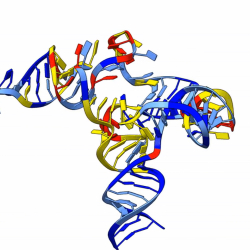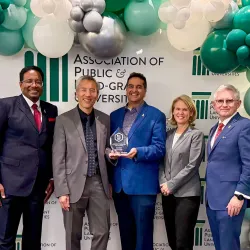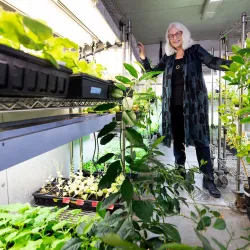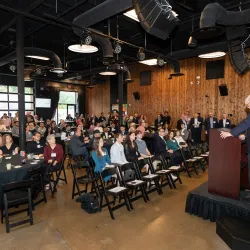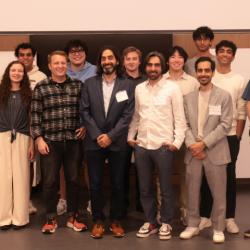Hands-on Experience for Budding Life Sciences Entrepreneurs
How do you teach undergraduates to turn their innovations into profitable businesses? For successful entrepreneur Allan Will, B.S. ’76, Zoology, the answer was to fund a course that equips fledgling inventors with the basic tools needed to pursue venture creation.
“Special topics in Entrepreneurship: Entrepreneurship in the Chemical and Life Sciences fills a niche in providing under- graduate students in the college with the life skills and technology know-how to bring their technologies to market,” says Martha Connolly, course instructor and director of Maryland Industrial Partnerships (MIPS), which promotes the development and commercialization of products and processes through university/industry partnerships as part of the university’s Maryland Technology Enterprise Institute (Mtech).
Students work in teams to create a solution or application to solve a complex problem, developing start-up and business plans. Recent student projects have included software to connect magnetic resonance images to three-dimensional anatomical models; development of a vaccine currently available for licensing; and scaffolding for artificial organs. “You cannot teach people to take risks, but you can give them the skills to succeed,” says Connolly, who brings experts to class to discuss licensing, intellectual property, patents, technology transfer, and financing among other topics of importance to entrepreneurs.
Will, who received his master of science in management at Massachusetts Institute of Technology in 1981, is no stranger to risk taking. Initially Will pursued a career at Abbott Laboratories, but motivated to find better treatments for heart disease when his father was diagnosed with cardiovascular problems, he left to lead a start-up company, DVI (Devices for Vascular Intervention). “When I started working at DVI, there were 16 of us in the office. Three years later we sold the company to Eli Lilly, and five years after that we had grown to 650 people and $100 million in revenues,” describes Will.
He later served as chief executive officer and/or chairman of numerous medical device companies including AneuRx and Ardina which were acquired by Medtronic, Evalve which was acquired by Abbott Laboratories, and Concentric Medical which was acquired by Stryker. He was also founder, chairman and chief executive officer of The Foundry, a leading medical device incubator where he co-founded 11 medical device companies.
“If you look at the economy and job creation, small businesses are critical to our economic growth,” Will explains. “The challenge in teaching entrepreneurship in the classroom is to get students to think outside the box in a less constrained manner. If you turn a problem on its head, you can make dramatic breakthroughs.”
Will typically returns to campus each spring to review business plan presentations and provide feedback to student groups. “It is critically important that graduates share their experiences with students. If I can provide inspiration to one student by sharing my successes and mistakes, then my efforts are worthwhile. As you move through your career, it is both valuable and rewarding to spend time mentoring others,” says Will, who has also been honored for his efforts mentoring women executives.




